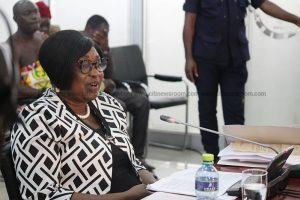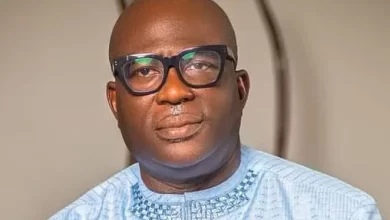
Deputy Special Prosecutor nominee, Cynthia Naa Koshie Lamptey says she will cooperate with her boss, Martin Amidu in the discharge of her duties if approved by Parliament.
Ms Lamptey told the Appointments Committee of Parliament during her vetting today [Wednesday] that she will peacefully co-exist with her boss and ensure that duties assigned to her are effectively discharged.
“Thankfully I worked with him when he was a Deputy Attorney General and when he became Attorney General too. Mr. Amidu is a workaholic so if he gives you work and you do it, that is it…” she said.
Corruption fight
On the fight against corruption. Ms Lamptey said she would apply her professional experience in criminal prosecution law in effectively dealing with corrupt officials.
“From the CV, it is quite clear that my professional experience is in prosecution and criminal law and that is what I am bringing on board to help him. At least, the office has the opportunity of initiating, prosecuting and investigating, so knowing ingredients that constitute the offence will help direct what to look out for, so you do not go back and forth in taking the docket back for them to review certain things.”
If approved, Cynthia Lamptey will assist Martin Amidu, who was sworn in as the Special Prosecutor in February.
President Nana Akufo-Addo nominated Jane Cynthia Naa Korshie Lamptey for the position of deputy Special Prosecutor on April 26.
She is a lawyer of 30 years standing at the Ghana Bar and a former acting Director of Public Prosecutions.
Among her notable works, Cynthia Lamptey led the prosecution of a former Executive Director of the National Service Scheme, Alhaji Imoro who is standing trial for the alleged theft of GHc86.9 million belonging to the state.
She was also in charge of the criminal prosecution of National Democratic Congress (NDC) financier, Alfred Agbesi Woyome, in the GHc 52 million judgment debt saga.
She left the department after 20 years in 2015.
The Office of the Special Prosecutor has been tasked to investigate and prosecute specific categories of cases and allegations of corruption and other criminal wrongdoing, including those involving alleged violations of the Public Procurement Act, 2003 (Act 663) and cases implicating public officers and politically-exposed persons.
The office has also be mandated to trace and recover the proceeds of corruption.
The Special Prosecutor’s office is expected to be independent of the Executive, which observers believe will allow it to deal with corruption-related issues which have plagued governance adequately.
citinews

